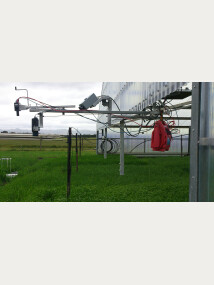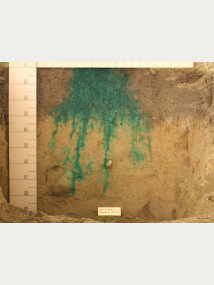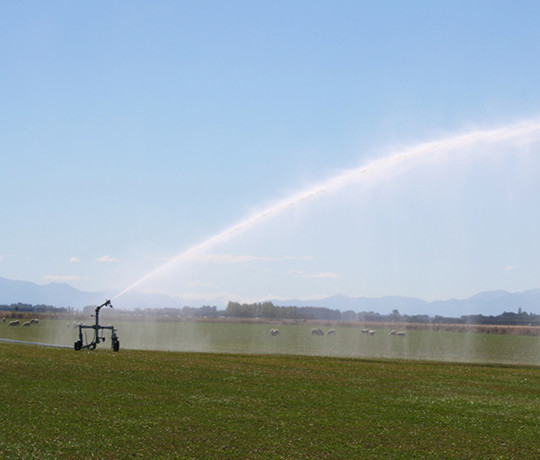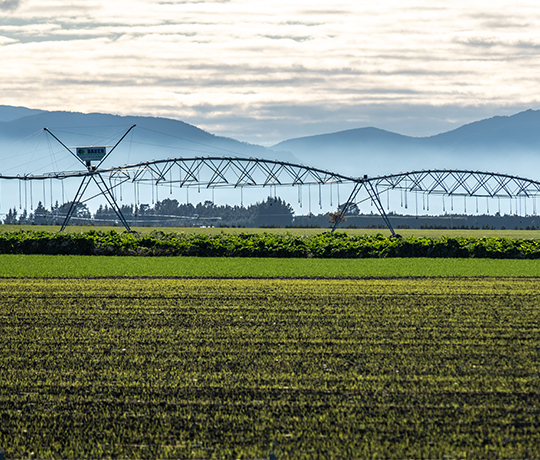| Funder | Collaborators | Duration |
|---|---|---|
| Ministry of Business, Innovation and Employment (MBIE) | Plant & Food Research; Lincoln Agritech; Massey University; Foundation for Arable Research (FAR) |
6 years 0 months
Start date: 01 Oct 2013 End date: 01 Oct 2019 |
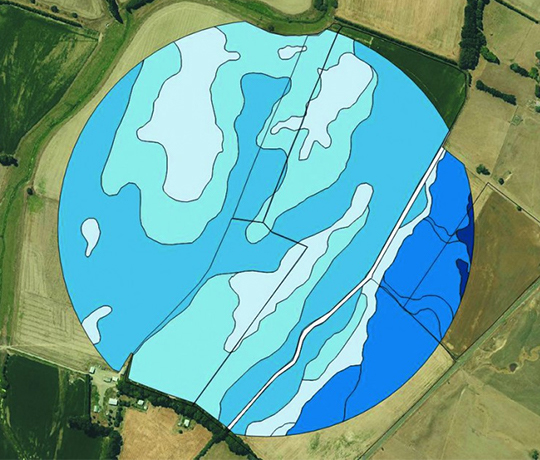
Developing and testing soil and crop sensor technologies that map spatial variability and monitor factors that influence effective irrigation, including soil water status and crop water use
Major technological advances in irrigation systems over the last two decades have significantly improved their ability to accurately apply water at appropriate intensities to agricultural land. The machines obviously need to be well maintained and managed to achieve their potential water use efficiency, and effectively convert water to productive growth while minimising water and nutrient losses through drainage and run-off. Examples of productivity gains, when effective irrigation eliminates crop water stress, include potato yield increases by 12 t/ha; pasture production increases from 8 to 10 t DM/y to 14-16 t DM/y; and avoided yield reductions of 12–20 kg/ha/mm from water stress in maize and barley crops.
Methods to best manage irrigation systems are a focus of our MBIE Programme “Maximising the Value of Irrigation” because water quality is declining in many water bodies and inappropriate irrigation poses a risk of over-applying water and increasing drainage of nutrients to these freshwater systems, which can contribute to declining water quality. Our research is developing and testing soil and crop sensor technologies that map spatial variability and monitor factors that influence effective irrigation, including soil water status and crop water use. The data can be relayed to remote devices in near real-time to inform irrigation scheduling and potentially be uploaded to new software controlled systems.
Initially, detailed surveys establish which areas under one system require different irrigation due to one or more factors. These factors include soil, crop, and topographic differences (e.g. slopes and hollows). There are also operational factors to be considered, including avoiding overlaps, raceways, and other no-go areas (e.g. streams and ditches).
Sensor technologies are being tested at experimental plots and participating commercial farms to monitor changes in soil moisture, drainage, crop growth and crop water stress (see Figs 1 & 2) at approximate 30-minute intervals. Scenario modelling of the collected data using The Agricultural Production Systems sIMulator (APSIM) allows us to simulate different irrigation management methods. A recent output from our research is a new APSIM module that models water movement through soil profiles, and, for the first time, takes into account preferential flow pathways (Fig 3). Despite a general awareness of the important role that preferential flow plays both in reducing plant uptake of irrigation water and increasing the likelihood of leaching and drainage, existing models have lacked the ability to incorporate this effect. In response, our programme developed and parameterised a conceptual multi-pore model, and coded it into APSIM, which will help the model better simulate field conditions. Full soil parameterisation of APSIM is accomplished by relating site-specific soils to an S-map soil description and then extracting full APSIM soil definitions from S-map using a web processing service (WPS).
Some initial results for one focus farm using precision irrigation of variable soils shows that there is 10–15% water saving when irrigation scheduling is customised to the soil pattern, with similar reductions in drainage losses. This would save 16,260 cubic metres of extracted water per year and avoid 15,351 cubic metres of water lost through drainage each year on this farm. It would also reduce any nutrient leaching that might accompany the drainage losses. Further modelling is underway to establish the potential benefit of precision irrigation at our other research sites.
The Ministry for Business, Innovation and Employment fund the research programme ‘Maximising the Value of Irrigation’. It is jointly led by Landcare Research and Plant & Food Research. The Foundation for Arable Research, Lincoln AgriTech, and Massey University are also research providers to the Programme.
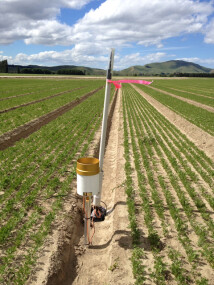
Contact details
John Drewry
Manaaki Whenua - Landcare Research, Palmerston North, New Zealand
P:
+64 6 353 4933
Email John
